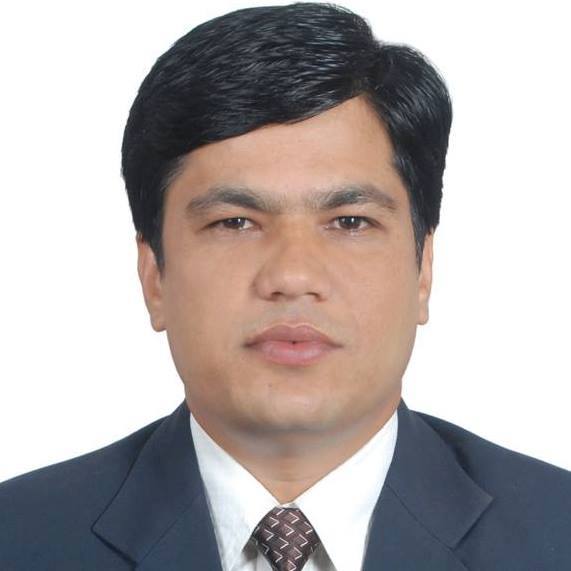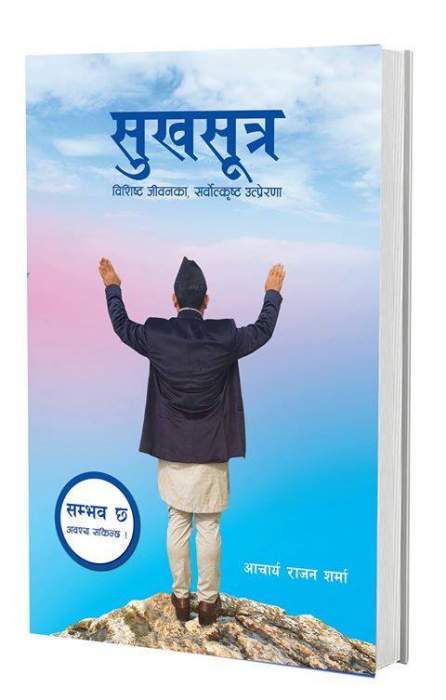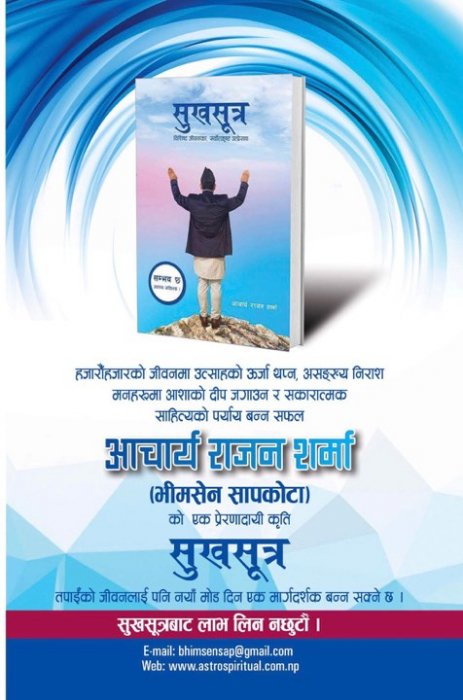

We are living in a fascinating as well as complex moment in history. When we ponder on the material progress and prosperity human beings have made today, it surely evokes a sense of awe and wonder. Human beings who resided in caves and lived on the herbs available in the jungle have stepped into the moon. People dine in a magnificent multistoried building, the most sophisticated five-star restaurants and can consume the foods they like produced in any part of the world.
Thanks to the globalization and the massive development of science and technology which has changed our perspectives of time, place and space. Unlike in the past when our ancestors had to walk miles and miles for many days in order to buy even the basic foods like salt for survival, people now can travel 24 hours 7 days in high speed planes and trains leaving aside some discrepancies in the developing countries and talking about the progress human beings have made in general. Material prosperity has reached its zenith. Invention in communication technology has changed our perspective of looking at life and the world.
In a click of finger, we can find any information we want and order any product produced in any part of the world. The list of human beings’ material progress and prosperity, thus, goes on. However, a million-dollar question is: Despite all these material progress and prosperity; inventions and discoveries in science and technology, are we happy? Are we healthy? Are we able to live beautifully, peacefully and delightfully? Are we conscious of how we are living our lives? Or what is guiding us? Are we in control of ourselves? Why are people living with depression and diseases despite the availability of sophisticated medical health services today? Does it mean that material prosperity alone does not give happiness to us? If not, how should we live our lives?
What’s wrong in the way we behave to oneself and others; what’s wrong in the foods we consume; the philosophy of life we believe in and what’s wrong in the way we act in our everyday life? Ultimately, what does it mean to be human, then? Many of us may be fortunate enough to have the knowledge of what it means to live a beautiful life. But the large scale of data of people suffering from depression throughout the world and an alarming rate of people committing suicide every day act testimony to the fact that there is something wrong in the way we live, think, eat, behave and act in our precious life. What are the ways out of living happy, healthily, peaceful and delightful life then? Acharya Rajan Sharma (Bhimsen Sapkota), a renowned scholar, spiritual master, cultural expert and motivational speaker, has persuasively presented answers to these questions in a lucid, crystal clear language and an aphoristic style in his widely popular book Sukhasutra. He has beautifully and brilliantly put forth his practical experiences and findings of his many years of research in this phenomenal book.

Divided into twenty-four parts, every section begins in an insightful, witty and memorable quotes from philosophers, poets, thinkers, writers, scholars, popular politicians and Holy Scriptures like Upanishads, Bible and Quran and ends with the gist of the entire section. It follows the same pattern throughout the book which makes it more informative, insightful and rewarding. For example, the first section entitled “Friendship with Enemy is an end to Enmity” (my translation) begins with a famous quote of Washingon Irving,”Great minds have purposes, others have wishes. Little minds are tamed and subdued by misfortune; but great minds rise above them”.
And the first section ends with the crux,”we should live like a drop of oil in the middle of water. Even being engrossed in the worldly affairs, we should learn to live aloof from material attachment. Whatever circumstances appear in life, we have to flow like water undaunted like a lake, torrential stream and the sea” (my translation). When I started reading the book, every word, line, and paragraph captivated and enticed me. Many times, it shook me suddenly and compelled me to ask, ‘Hey, am I enjoying my life; celebrating my life or wasting my life?’ While going through the book, it led me to self-reflection and instilled in me the determination to correct the course of my life in many senses. Once I picked up the book to read, I could not stop reading it until I finished reading it. I am sure, many readers will have the same experiences. With colorful cover page and proper size to carry, I read it in the train while travelling to and fro home.
Moreover, my reflection on the book is that Sukhasutra deals not only with the question of how to live every moment of life with celebration, delight, pleasure, bliss but also presents beautifully the crux of Eastern and Western Philosophy and Holy Scriptures in brief. It presents the compelling arguments that the principles of Upanishads, Vedas and other holy scriptures of Hinduism, Buddhism, Bible, Quran is not just for ritualistic readings and ritualistic practices, but their ideals should be translated into practical life. As a vegan in dietary preference and a soft-spoken saint like figure of incredible optimism, energy, knowledge and wisdom, Acharya Rajan Sharma does not only talk about these principles, but he walks the talk; proves his words in his actions; he practices in real life the principles and ideals of life he holds valuable. In addition to providing practical guidelines on healthy, wealthy, happy and spiritually blessed life drawing upon the classical heritage of epistemology, intellectual history and critical theories, Acharya Sharma’s Sukhasutra paves the way for the quest of ultimate meaning in life- Enlightenment which Upanishad sums as tat twa masi ; Buddhism as Appadippavawa; Know thyself of Bible, Nurmasi preached by Mohammad. In addition, Acharya Sharma, puts forth compellingly that divinity is within us. Of course, demonity too.
But the choice is ours- do we want to strive for divinity like Buddha, Jesus Christ, Mohammad or live unconsciously the life of a devil with not a single moment of peace and full of restlessness, rush and confusion? The cause of sorrow and sadness in life, Sharma writes, is the cause of greed, vices, and pride and ignorance which hollows oneself and brings untold suffering in life. Until and unless we do not clean ourselves of all those ‘deadly sins’, sufferings and sadness continues in life. Life is wasted, empty and bitter. Furthermore, he energizes people to wake up and live consciously. As we close our eyes and start seeing from the inner eyes, there is no need to rush to temple, extol the statues, church, mosques and pilgrimages, Acharya Sharma argues. The focus of divinity within humanity and self-transformation, thus, is what Acharya Sharma highlights in the book.

To conclude, what is at the center of the book is the question of humanity and what does it mean to be a human? Acharya Rajan Sharma has brilliantly and beautifully foregrounded the fact that first, we are humans. Race, gender, class, nationalities and all other markers and binary categories of identity formation are the social and cultural construct. In order to cross all the borders and break the boundaries, we must ask, ‘who am I?’ and try to find its answer, he writes.
If we try to practice the ideals and mantras of life that Acharya Rajan Sharma has articulated and intends to disseminate throughout the world through Sukhasutra, I am confident that entire world becomes like a family; all the men and women of the entire world look like sisters and brothers. They do not look like strangers but the members of a single family. At a time when there is an unprecedented rise in violence and conflict everywhere- within an individual, in a family, in a society, in a nation and worldwide- Acharya Sharma’s Sukhasutra has appeared as a beacon of hope for the readers. Let’s all of us read it, get delighted and ultimately set the journey towards the attainment of enlightenment which is the ultimate aim of life. This book will definitely make you realize that there is no time for sadness and negativity in life. Life is a celebration. Let’s rejoice it.
~Jiva Nath Lamsal , PhD candidate, The University of Sydney,Australia
Uppadipavawa!! Om Bhawatu Sabba Mangalam!!
Comment